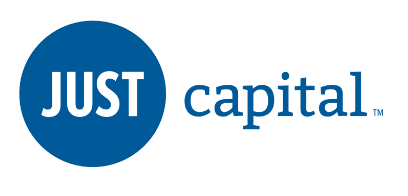
A New Paradigm For “Just” Business: JUST Capital publishes its research results
Blog In 1970 Milton Friedman wrote a now famous essay in the NY Times Magazine declaring that the social responsibility of business is to increase its profits. Since then, writers and researchers have been debating whether this accurately reflects the responsibilities of business in society. In the decade since the Global Financial Crisis these debates have become particularly critical, with some participants questioning the basic principles of free market capitalism and whether they serve our current societal needs.
In 1970 Milton Friedman wrote a now famous essay in the NY Times Magazine declaring that the social responsibility of business is to increase its profits. Since then, writers and researchers have been debating whether this accurately reflects the responsibilities of business in society. In the decade since the Global Financial Crisis these debates have become particularly critical, with some participants questioning the basic principles of free market capitalism and whether they serve our current societal needs.
But what if the best way to do right by shareholders was to run a socially responsible business?
New findings by JUST Capital are showing that this is often the case. JUST Capital is a non-profit research organization whose mission is “to build a more just marketplace that better reflects the true priorities of the American people.” Their distinctive research approach began with a survey of the U.S. public on what they believe makes a “JUST” company.
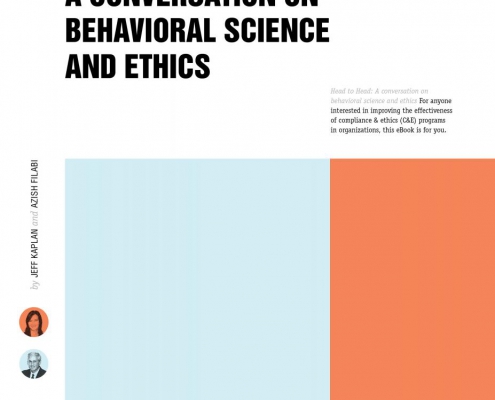
Ethical Systems Releases New Behavioral Science eBook: Head to Head: A conversation on behavioral science and ethics
Blog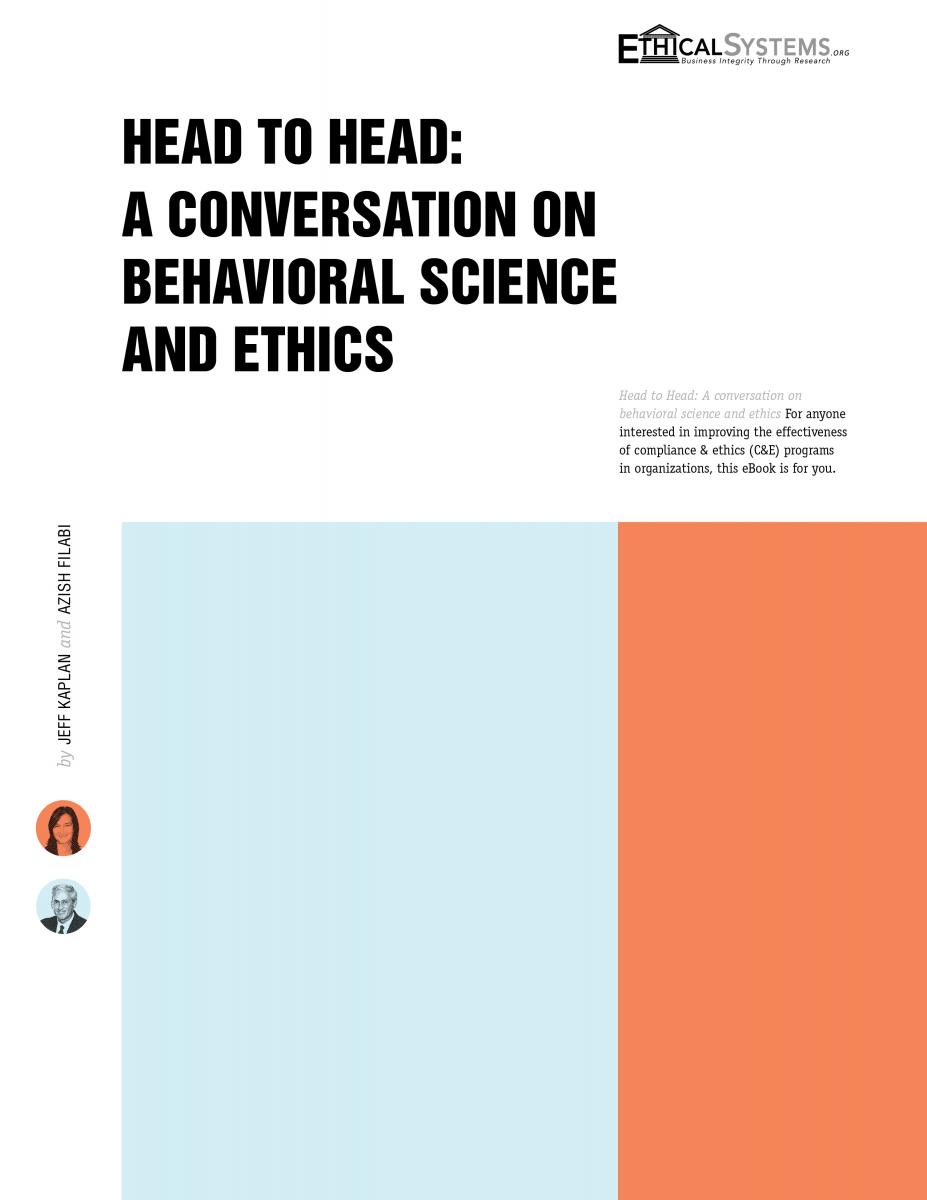 Ethical Systems Releases New Behavioral Science eBook: Head to Head: A conversation on behavioral science and ethics
Ethical Systems Releases New Behavioral Science eBook: Head to Head: A conversation on behavioral science and ethics
New York, NY – Ethical Systems is pleased to announce the release of Head to Head: A conversation on behavioral science and ethics a new, free eBook created to help practitioners in the ethics and compliance field integrate social and behavioral science research to help strengthen employee-focused programs.
Structured as a series of one-on-one conversations between Ethical Systems CEO Azish Filabi and Ethical Systems collaborator, Jeffrey Kaplan, partner at Kaplan & Walker, LLP, Head to Head demystifies academic research and makes findings applicable to practitioners. Research is curated and explained to make integration into existing programs easy and serviceable. Filabi's deep expertise as a lawyer and work as an Ethics Officer at the NY Fed coupled with Kaplan's pioneering writing on conflict of interest and tenure within the legal community, make for an ideal background from which to distil information and make it palatable for the business world. In addition, Head to Head: A conversation on behavioral science and ethics has been professionally designed to structure content and facilitate the application of the many lessons and tips featured throughout the eBook.
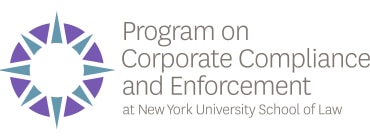
Are We In a Compliance Arms Race?
Blog Over at the NYU Law's Compliance and Enforcement blog, ES CEO Azish Filabi has written a guest post on whether companies are in a compliance arms race-- and the detrimental impact it can have on organizational culture and ethics.
Over at the NYU Law's Compliance and Enforcement blog, ES CEO Azish Filabi has written a guest post on whether companies are in a compliance arms race-- and the detrimental impact it can have on organizational culture and ethics.
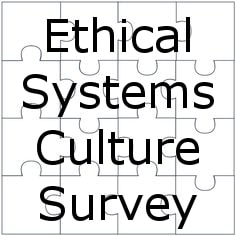
Introducing the Ethical Systems Culture Measurement Tool
Blog Ethical culture is the linchpin to running an ethical organization. Yet, while everyone agrees that culture is a vital aspect of any successful organization there is no consensus on how to analyze and measure it. At Ethical Systems, we are working with the top researchers on organizational culture and have developed assessment tools that companies can use. Our new Ethical Systems Culture Measurement site provides a suite of modules designed to measure various elements of organizational culture.
Ethical culture is the linchpin to running an ethical organization. Yet, while everyone agrees that culture is a vital aspect of any successful organization there is no consensus on how to analyze and measure it. At Ethical Systems, we are working with the top researchers on organizational culture and have developed assessment tools that companies can use. Our new Ethical Systems Culture Measurement site provides a suite of modules designed to measure various elements of organizational culture.
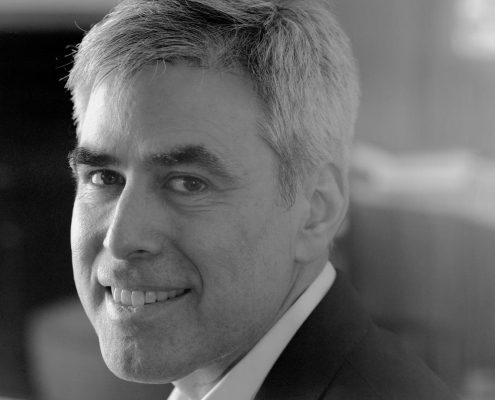
Featured Ethics and Social Science Expert: Jonathan Haidt
BlogInterview with Jonathan Haidt, author of The Righteous Mind and Thomas Cooley Professor of Business Ethics at NYU Stern
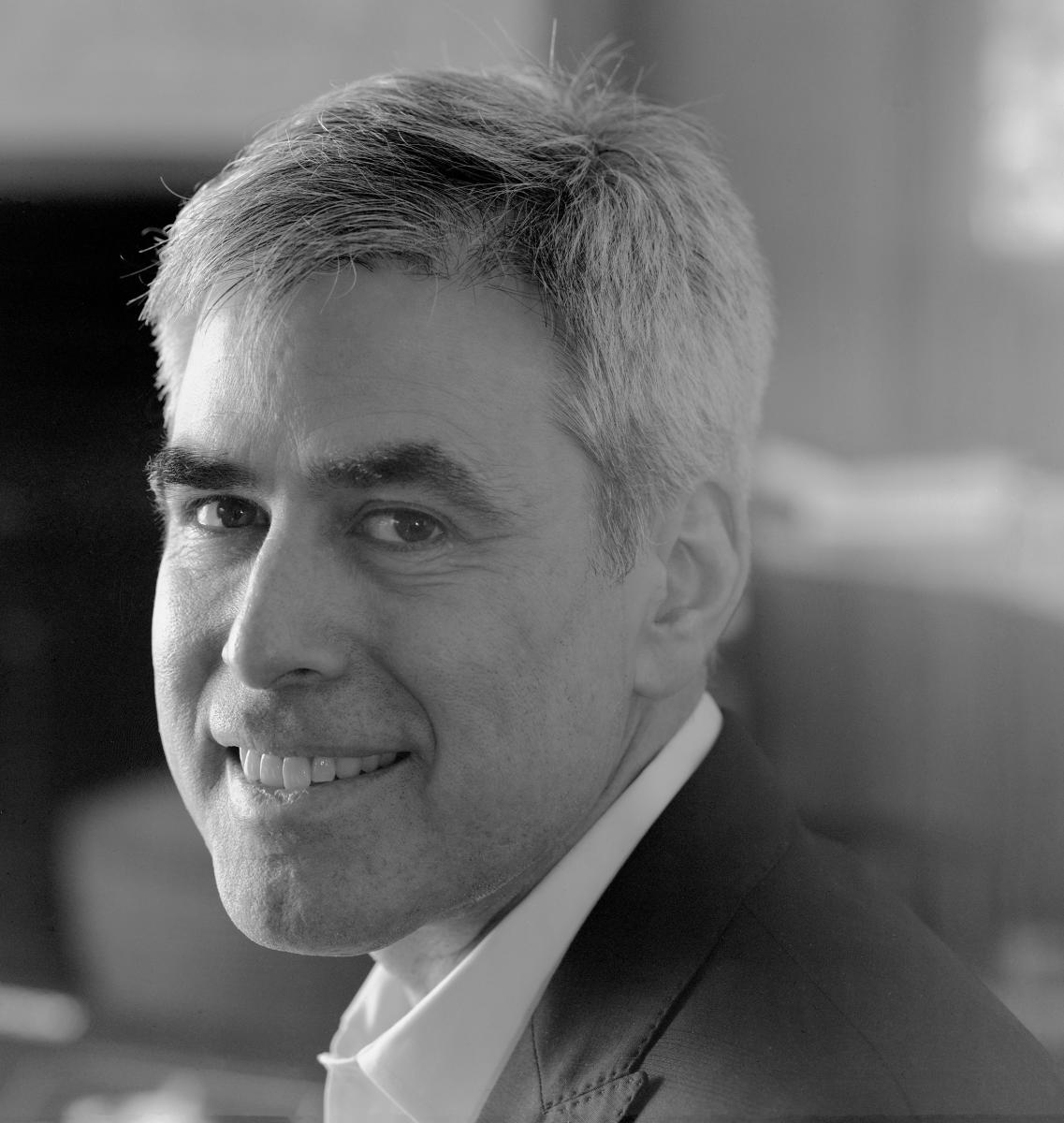 What are your main areas of research/work around business ethics?
What are your main areas of research/work around business ethics?
What I discovered when I moved to NYU-Stern in 2011 is that there’s a lot of great research on behavioral ethics going on at business schools, which I had not known about as a social psychologist studying morality, and which ethics and compliance officers generally didn’t know about. What was needed was a way to gather up all the existing research and make it available and accessible to businesspeople. That’s why I created the first iteration of Ethical Systems back in 2011 – it was originally just a simple website to bring together all the varied worlds of knowledge that one needs before one can try to improve these complicated things called corporations. In 2014 the site was re-launched as the much larger collaborative project that it is today. Through our collaborative approach, we are researching topics where we think business could benefit, such as culture measurement.
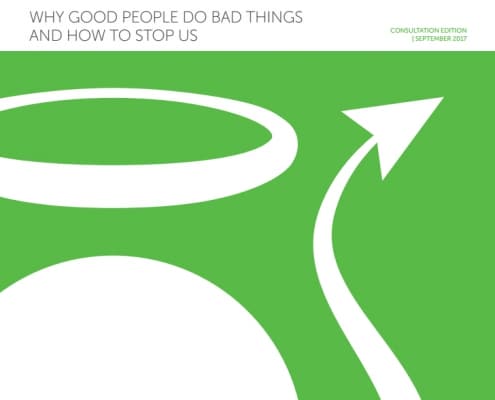
The Only Way is Ethics: A new whitepaper
Blog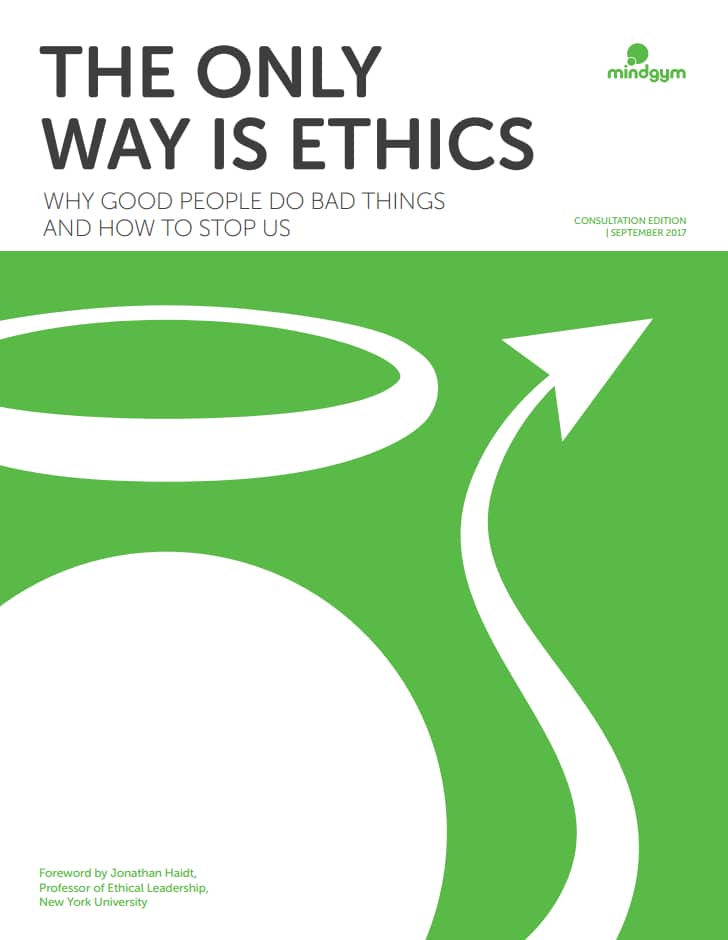 We are pleased to announce a newly-released white paper in partnership with MindGym entitled The Only Way is Ethics: Why good people do bad things and how to stop us. This resource is a free, 44-page guide which presents research on why traditional solutions to managing ethics aren’t working, while also providing a set of tools and a framework to begin diagnosing your own organization alongside concrete advice for improvement. The Only Way is Ethics includes a foreward by Ethical Systems Founder/Director Jonathan Haidt and CEO Azish Filabi.
We are pleased to announce a newly-released white paper in partnership with MindGym entitled The Only Way is Ethics: Why good people do bad things and how to stop us. This resource is a free, 44-page guide which presents research on why traditional solutions to managing ethics aren’t working, while also providing a set of tools and a framework to begin diagnosing your own organization alongside concrete advice for improvement. The Only Way is Ethics includes a foreward by Ethical Systems Founder/Director Jonathan Haidt and CEO Azish Filabi.

Azish Filabi at The Banking & Finance Ethics 2017 Conference
BlogEthical Systems CEO Azish Filabi was invited to deliver the opening remarks at The Banking & Finance Ethics 2017 conference on June 8th in Sydney, Australia. The conference covered the importance of trust and an ethical foundation for the financial services sector; exploring the crucial role individuals play in ensuring that the industry operates with integrity. We present her address below
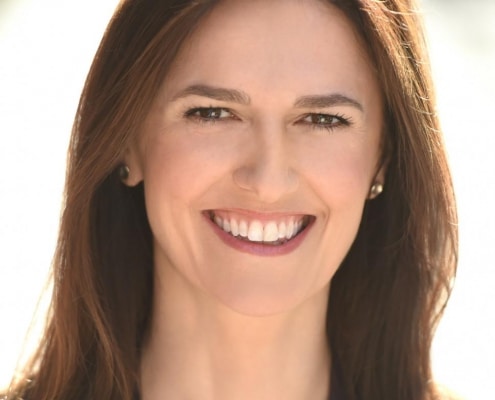
Featured Ethics and Behavioral Science Scholar for June: Caroline Webb
BlogInterview with Caroline Webb, author of How to Have a Good Day and Expert on Ethics and Behavioral Science
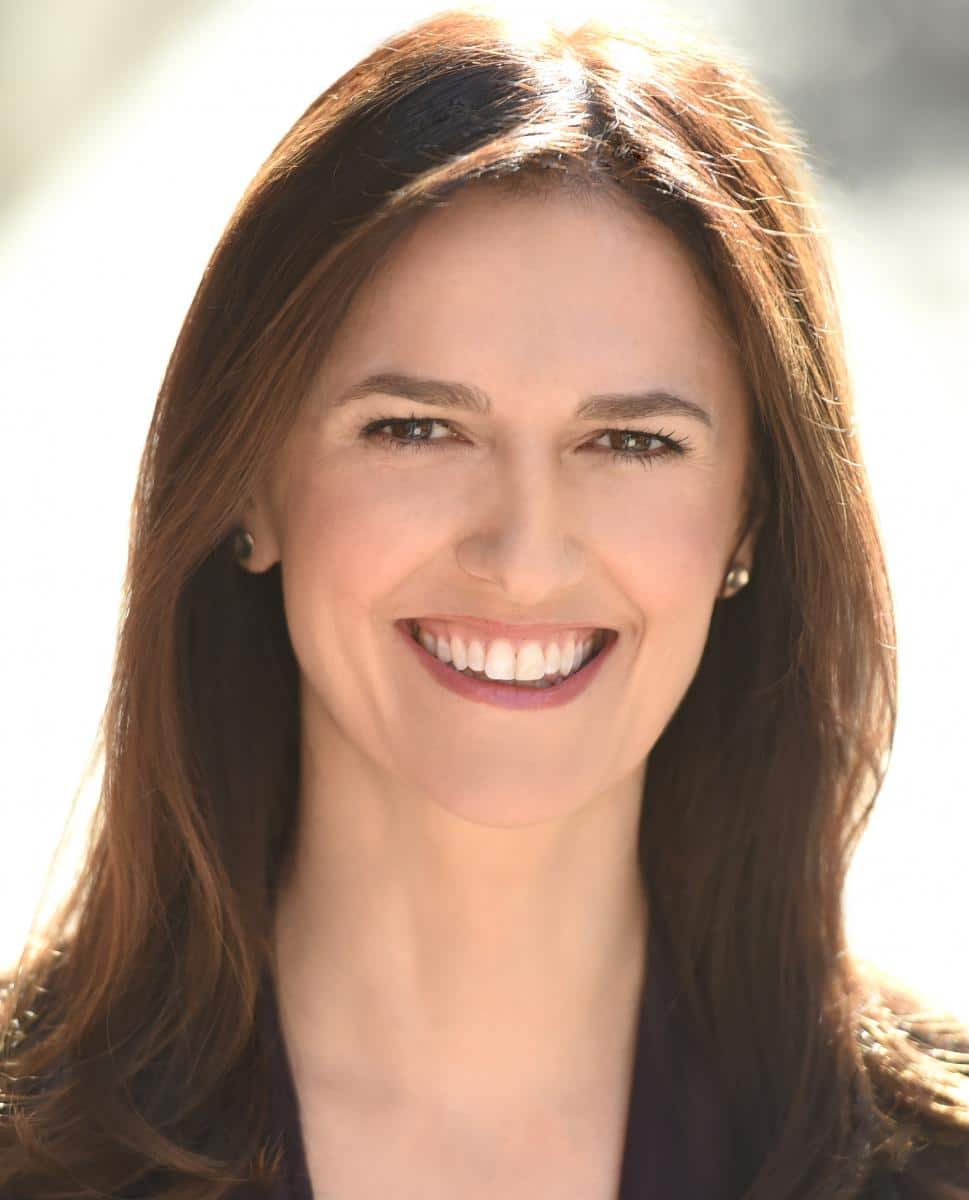
What are your main areas of research/work?
I show people how to use insights from behavioral science to improve their performance and wellbeing at work. In practice that often means helping them rethink the way they set goals, approach important conversations, tackle their tasks, manage their workload, handle personal setbacks and sustain their energy from day to day. Sometimes this is through 1-1 coaching and team sessions for senior leaders, but it’s often through workshops and interactive speeches for larger groups too. I also advise a couple of companies on ways to use behavioral science more broadly, including McKinsey & Company where I did behavioral change work for 12 years.
What do most companies overlook when it comes to behavioral economics, psychology, and neuroscience?
The primary focus of applied behavioral science to date has been public policy – something I applaud as a one-time policy wonk myself. But there’s a lot of untapped opportunity in business. At the moment, behavioral insights are mostly being applied by folks in the marketing function, and to a lesser extent in strategic decision-making. I’m always surprised that there isn’t more making its way into the people and culture domain, both through the HR function and in everyday management. But I’m optimistic that this will change – and it’s my mission to help change it.
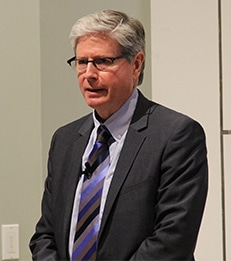
Our Book Discussion With Jack Ewing and NYU’s Center For Sustainable Business
Blog On May 23, the NYU Stern Center for Sustainable Business and Ethical Systems welcomed Jack Ewing, European Economics Correspondent for The New York Times, for a discussion of his new book "Faster, Higher, Farther: The Volkswagen Scandal".
On May 23, the NYU Stern Center for Sustainable Business and Ethical Systems welcomed Jack Ewing, European Economics Correspondent for The New York Times, for a discussion of his new book "Faster, Higher, Farther: The Volkswagen Scandal".
Ethical Systems CEO Azish Filabi introduced Jack Ewing and discussed the ways in which this event exemplifies the mission of each center: "This event is a great opportunity for our two organizations to partner given the overlap between ethical failures and environmental impact at VW. That VW’s actions breached the trust of its customers, employees, and the government is an understatement. The emissions fraud represents not only disregard for good business practices, but also the necessity of businesses to be at the forefront of meeting global environmental challenges. It is precisely the type of management decisions we are educating Stern students NOT to make."
Ewing, who has spent more than 20 years covering German business and economics, opened his presentation with a brief history of Volkswagen, which emerged in the late 1940s as the icon of post-war German regeneration. He detailed Volkswagen’s fraudulent emissions testing and took the audience behind the scenes to expose how this deception happened, who discovered it and how the company tried to cover up its misdeeds.

Airlines and Stakeholders: A First Class Relationship
Blog
U.S. airlines have recently hit some ethical turbulence, beginning last month when United Airlines personnel physically dragged a passenger from an overbooked flight and culminating last week when a “near riot” broke out in Fort Lauderdale after Spirit Airlines canceled 11 flights during a labor dispute with its pilots. The public has become increasingly critical of air travel.
Yet the business community seems to disincentivize airlines from pursuing a more ethics-forward approach. When American Airlines gave pay raises to its pilots and flight attendants ahead of contract negotiations, Wall Street analysts complained about the prioritization of labor over shareholders and exacted punishment on AAL’s stock price. The flight attendants’ union countered with a petition pointing out that shareholders have received ample compensation over the last three years.
